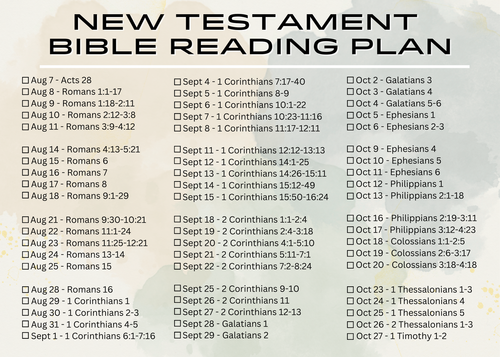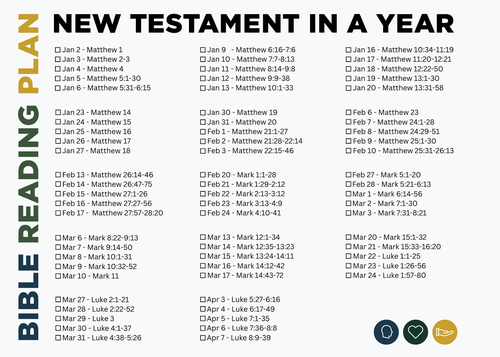Storing Up Wrath
Romans 1:18-2:11
In Romans 1:18 through 2:11, the Apostle Paul lays out the foundation of God's righteous judgment, underlining God's impartiality and the consequences of individual actions on one's spiritual fate. In Romans 1:18, Paul declares God's wrath against man's ungodliness and unrighteousness for suppressing the truth by their wickedness. The Apostle reasoned that God's invisible attributes, eternal power, and divine nature were clearly perceptible since the world's creation, leaving humanity without an excuse for their disbelief.
Furthermore, Paul proclaims that despite the evidence of God's existence, humankind chose to reject Him, creating gods in their image, leading to a downward spiral of sins, including lust, idolatry, and all manners of wickedness. They exchanged the glory of the immortal God for images resembling mortal man, birds, animals, and reptiles (Romans 1:23). God "gave them up" to their lustful desires and a debased mind which, in essence, is a form of divine judgment.
By Romans 2:1, Paul turns his attention to those who judge others for these sins, stating that they are without excuse because they practice the very same things. He cautions that those who pass judgment on others yet commit the same acts are condemning themselves. It's a powerful message about the danger of hypocrisy. God's judgment is based on truth, and those who judge hypocritically are storing up wrath for themselves on the day of wrath when God's righteous judgment will be revealed (Romans 2:2-5).
Paul further develops the concept of God's righteous judgment in Romans 2:6-11, stating that God will render to each one according to his works. For those who by patience in well-doing seek glory and honor and immortality, he will give eternal life (Romans 2:7). However, for those who are self-seeking and do not obey the truth but obey unrighteousness, there will be wrath and fury (Romans 2:8). This wrath extends to every soul of a man who does evil, first for the Jew and also for the Greek (Romans 2:9). But there is glory, honor, and peace for everyone who does good, first for the Jew, and also for the Greek (Romans 2:10).
Paul concludes this section by reiterating that God shows no partiality. His judgment is equitable and based on the actions of each individual, irrespective of their ethnic or social standing (Romans 2:11).
Paul's discourse from Romans 1:18 through 2:11 is a powerful reminder of God's judgment, absolute righteousness, and impartiality. It underscores the necessity of godly living, the dangers of hypocrisy, and the ultimate consequences of individual actions on one's spiritual destiny.
Furthermore, Paul proclaims that despite the evidence of God's existence, humankind chose to reject Him, creating gods in their image, leading to a downward spiral of sins, including lust, idolatry, and all manners of wickedness. They exchanged the glory of the immortal God for images resembling mortal man, birds, animals, and reptiles (Romans 1:23). God "gave them up" to their lustful desires and a debased mind which, in essence, is a form of divine judgment.
By Romans 2:1, Paul turns his attention to those who judge others for these sins, stating that they are without excuse because they practice the very same things. He cautions that those who pass judgment on others yet commit the same acts are condemning themselves. It's a powerful message about the danger of hypocrisy. God's judgment is based on truth, and those who judge hypocritically are storing up wrath for themselves on the day of wrath when God's righteous judgment will be revealed (Romans 2:2-5).
Paul further develops the concept of God's righteous judgment in Romans 2:6-11, stating that God will render to each one according to his works. For those who by patience in well-doing seek glory and honor and immortality, he will give eternal life (Romans 2:7). However, for those who are self-seeking and do not obey the truth but obey unrighteousness, there will be wrath and fury (Romans 2:8). This wrath extends to every soul of a man who does evil, first for the Jew and also for the Greek (Romans 2:9). But there is glory, honor, and peace for everyone who does good, first for the Jew, and also for the Greek (Romans 2:10).
Paul concludes this section by reiterating that God shows no partiality. His judgment is equitable and based on the actions of each individual, irrespective of their ethnic or social standing (Romans 2:11).
Paul's discourse from Romans 1:18 through 2:11 is a powerful reminder of God's judgment, absolute righteousness, and impartiality. It underscores the necessity of godly living, the dangers of hypocrisy, and the ultimate consequences of individual actions on one's spiritual destiny.





Recent
Archive
2023
January
Happy New Year!He Will Save His People From Their SinsMy Beloved SonTemptation And MinistryThe SermonLeaving, Lying, Limits, Love, Largesse, and The Lord's PrayerTreasure, Anxiety, and JudgmentAstonishing AuthorityStorms, Demons, and HealingJesus Is CompassionateHis Eye Is On The SparrowSwords, Rewards, and MessengersThe Lord of the SabbathBlasphemy, Bad Trees, Signs, and FamilyStories, Sowers, and SoilsParables, Hidden Treasure, and RejectionFame, Food, Fear, Faith, and FringeReal Issues And The Power Of GodDying To Find LifeLike The SunChildren, Temptation, Sheep, And ForgivenessMarriage, Kids, And MoneyTo Serve And Give His Life
February
The ArrivalStories That StingQuestion TrapsHidden Motives And LamentThe End...?UnexpectedReady?Punishment, The Plot, And PerfumeTreachery, Passover, and The CupBetrayal, Injustice, And DenialThe Field Of Blood And The GovernorCrucifixion And DeathAll AuthorityMark—The Beginning Of The GospelHealing, Preaching, And The Forgiveness Of SinEating With Tax Collectors, Fasting, The Sabbath, And An Escape BoatThe Twelve, Blasphemy, Family, And A ParableParables And PowerA Different Kind Of StormPower Had Gone Out
March
Death, Hunger, And MiraclesCommandment Or TraditionDo You Not Yet Understand?The Christ And A Glimpse Of His GloryUnbelief, Confusion, And SinDivorce, Children, And PossessionsTo Give His Life As A RansomHosannaThe Rejected Stone, Taxes, And The Great CommandmentDestruction And The EndNo One Knows, An Anointing, And A Promise To BetrayPassover And GethsemaneThe Kiss, Arrest, And DenialPilate, Simon, And The CrucifixionDeath, Burial, Resurrection, And What\'s NextTheophilus And A Visit From GabrielMary And The MagnificatBenedictusThe Arrival And The ShepherdsSimeon, Anna, And The SpiritFruits Keeping With Repentance And BaptismThe Wilderness, Nazareth, And CapernaumSimon's Mother-In-Law, Fishing, A Leper, And Sins
April
Tax Collectors, Fasting, Sabbath Controversies, And The TwelveWhy Do You Call Me Lord, Lord?Jesus Marveled, A Raised Son, And QuestionsA Sinful Woman And A ParableObeying The Word, A Storm, And DemonsTwelve Years, Twelve Apostles, And SpeculationGreater, Costly, And GloryNot Getting It, The Cost, And AppointedWoes, Neighbors, And What Is NecessaryHelp Us Pray And A Divided Kingdom?Signs, Lights, And WoesHypocrisy, Fear, A Fool, And AnxietyParables, Division, And The TimesWarnings, A Daughter Of Abraham, And Jerusalem, JerusalemA Son Or An Ox, Parties, And DiscipleshipLost ThingsThe Dishonest Manager, The Law, And Anguish In This FlameMillstones And Mustard SeedsPersistent Prayer, Humility, A Childlike Faith, And The Rich RulerEverything That Is Written, A Blind Beggar, And A Wee Little Man
May
A Parable, A Colt, A Prophecy, And A CleansingAuthority, Wicked Tenants, And TaxesThings To Beware Of And WidowsDestruction, Persecution, The Son Of Man, And WatchingThe Plot, Betrayal, Lord's Supper, And Inappropriate BehaviorPrediction, Fulfillment, Agony, Betrayal, And DenialMistreated, Taken Before The Council, Pilate, Herod, And Delivered To Be CrucifiedCrucifixion, Death, And BurialHe Is Not HereDisbelieved For JoyIn The Beginning…The Lamb Of God And A WeddingZeal, What's Inside, And Born AgainHe Must Increase
Categories
no categories
Tags
no tags
